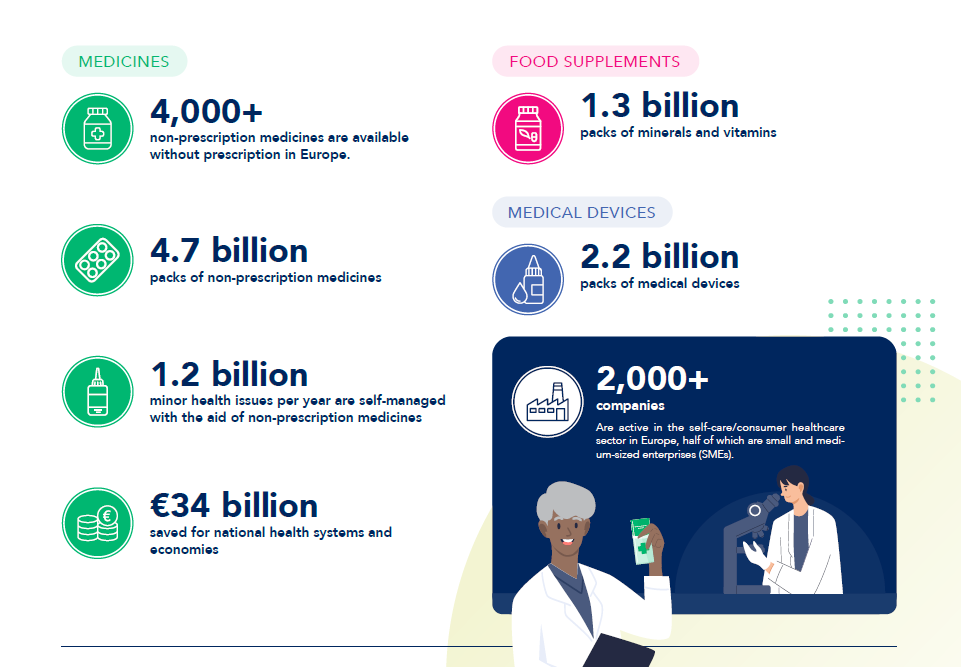What if we told you that Europe already has a health solution that treats over a billion ailments a year, saves billions in public spending, and doesn’t require a doctor’s appointment? It’s not a new miracle drug or the latest AI breakthrough. It’s something far simpler: self-care.
Self-care includes the everyday products millions of Europeans use to stay well or bounce back quickly, such as non-prescription medicines like painkillers, cold and flu remedies, allergy tablets, and antacids; food supplements like vitamin D, B12, magnesium, and iron; and medical devices like condoms, lubricant eye drops, and the humble but heroic band-aid. These tools empower people to take health into their own hands. Literally!
In 2024, Europeans purchased over 4.7 billion packs of non-prescription medicines and 1.3 billion packs of food supplements, supporting their health without leaning on already overstretched healthcare services. That’s €34 billion in savings and 1.2 billion minor ailments resolved without a single appointment. Still think self-care is trivial?
Without self-care, Europe would need 120,000 more GPs, or each working 2.4 more hours a day — an impossible ask for systems already under strain.
But here’s the catch: access to self-care still depends on where you live. A nasal spray or antifungal cream that you can buy freely in one country, might require a prescription in another. The rules don’t just vary, they puzzle. It’s time we simplified the prescription-to-non-prescription switch process and created a truly EU-wide internal market for self-care. After all, does your headache really know it crossed a border?
And let’s not forget the fine print: the amount of access doesn’t matter, if people don’t know how to use it. Health literacy is the key to unlocking responsible self-care. When people can recognise symptoms, choose appropriate treatments, and know when to consult a professional, they become active participants in managing their health. During the COVID-19 pandemic, self-care was a quiet hero, keeping countless at home, managing mild symptoms, and freeing up space in hospitals for those who needed it most. Not a bad outcome for a pack of paracetamol and a patient well-informed by their pharmacist.
Policymakers have a golden opportunity: to embed self-care in public health strategies, harmonise regulation, and invest in education and digital tools.
As Europe moves forward with health system reform and resilience planning, one question must be asked: are we fully empowering people to care for themselves, or are we missing one of the most accessible and cost-effective solutions at our disposal?
Self-care is not secondary medicine – it is frontline healthcare. It supports prevention, autonomy, and sustainability. And Europe’s health future will be stronger when we finally give it the policy attention it deserves.

Sign up to The Parliament's weekly newsletter
Every Friday our editorial team goes behind the headlines to offer insight and analysis on the key stories driving the EU agenda. Subscribe for free here.